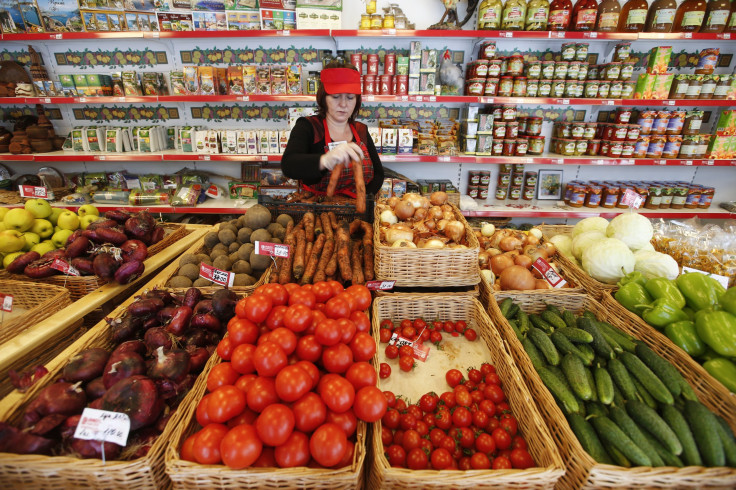A Scientific Way To Shop For Healthier Food, Revealed In A Study

Researchers found that people who eat healthy food before going grocery shopping end up buying more produce. Twenty-five percent of study subjects asked to eat an apple before shopping bought fruits and/or vegetable thereafter.
The hypothesis that people who eat healthy are more likely to purchase healthy food on their next shopping trip was made into a study. Aner Tal and Brian Wansink, both PhD degree holder from Cornell University, and researchers and authors of Slim by Design: Mindless Eating Solutions for Everyday Life, gave 120 people either an apple, a cookie, or no food sample prior to shopping. After the grocery trip, it was found that people who were given an apple bought 28 percent and 25 percent more fresh produce than the cookie recipients and the individuals who did not receive anything respectively. "What this teaches us," Tal explains, "is that having a small healthy snack before shopping can put us in a healthier mindset and steer us towards making better food choices."
A second study followed, this time via a virtual method. Fifty-six participants were asked to imagine themselves grocery shopping after being given an actual cookie and apple. They were then showed 20 pairs of food items, one low-calorie and the other high-calorie. The second study yielded the same results as the first study: apple recipients chose the healthier food items and cookie recipients chose the high-calorie treats.
Finally, a third study confirmed if simply giving a food sample prior to shopping is the reason behind healthier food choice. The researcher divided 50 study subjects into three groups; the first two groups were given milk labelled, "healthy, wholesome chocolate milk," and "rich, indulgent chocolate milk." The third group did not receive anything. All of them were then instructed to shop virtually for healthy and unhealthy food. The participants given the healthier type of milk bought healthier food. The researchers then concluded that people’s food choice were not driven by the actual nutritious content of the food, but rather their perceived value.
The researchers then recommended shoppers to eat a piece of healthy snack before shopping, as this may result in two things. The first benefit is it lessens hunger pangs, and second, it will likely drive people toward healthier food choices.
To contact the writer, email rinadoctor00@gmail.com





















